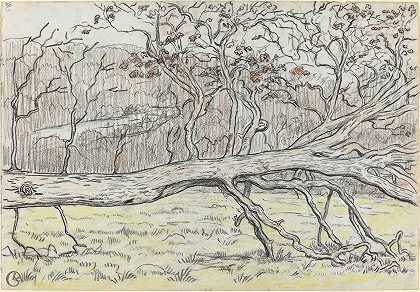[单选题]野兽
正确C
新概念英语第三册| Lesson 1 A puma at large 逃遁的美洲狮
Pumas are large, cat-like animals which are found in America. When reports came into London Zoo that a wild puma had been spotted forty-five miles south of London, they were not taken seriously. However, as the evidence began to accumulate, experts from the Zoo felt obliged to investigate, for the descriptions given by people who claimed to have seen the puma were extraordinarily similar.
The hunt for the puma began in a small village where a woman picking blackberries saw 'a large cat' only five yards away from her. It immediately ran away when she saw it, and experts confirmed that a puma will not attack a human being unless it is cornered. The search proved difficult, for the puma was often observed at one place in the morning and at another place twenty miles away in the evening. Wherever it went, it left behind it a trail of dead deer and small animals like rabbits. Paw prints were seen in a number of places and puma fur was found clinging to bushes. Several people complained of "cat-like noises' at night and a businessman on a fishing trip saw the puma up a tree. The experts were now fully convinced that the animal was a puma, but where had it come from? As no pumas had been reported missing from any zoo in the country, this one must have been in the possession of a private collector and somehow managed to escape. The hunt went on for several weeks, but the puma was not caught. It is disturbing to think that a dangerous wild animal is still at large in the quiet countryside.

美洲狮是一种体形似猫的大动物,产于美洲。当伦敦动物园接到报告说,在伦敦以南45英里处发现一竖困搭只美洲狮时,这些报告并没有受到重视。可是,随着证据越尺改来越多,动物园的专家们感到有必要余拿进行一番调查,因为凡是声称见到过美洲狮的人们所描述的情况竟是出奇地相似。
搜寻美洲狮的工作是从一座小村庄开始的。那里的一位妇女在采摘黑莓时的看见“一只大猫”,离她仅5码远,她刚看见它,它就立刻逃走了。专家证实,美洲狮非被逼得走投无路,是决不会伤人的。事实上搜寻工作很困难,因为常常是早晨在甲地发现那只美洲狮,晚上却在20英里外的乙地发现它的踪迹。无论它走哪儿,一路上总会留下一串死鹿及死兔子之类的小动物,在许多地方看见爪印,灌木丛中发现了粘在上面的美洲狮毛。有人抱怨说夜里听见“像猫一样的叫声”;一位商人去钓鱼,看见那只美洲狮在树上。专家们如今已经完全肯定那只动物就是美洲狮,但它是从哪儿来的呢?由于全国动物园没有一家报告丢了美洲狮,因此那只美洲狮一定是某位私人收藏豢养的,不知怎么设法逃出来了。搜寻工作进行了好几个星期,但始终未能逮住那只美洲狮。想到在宁静的乡村里有一头危险的野兽继续逍遥流窜,真令人担心。
◆spot /spɑt/v. 看出 发现pick out, see, recognize, catch sight of
n.斑点:There is a black spot on your shirt.
on the spot 立刻 马上= at once, immediately [不正式的说法]
在现场at the place of the action
spot = see 强调结果 辨别出 看见 识别 发现
find 强调发现的结果
find out 查出事实真相
discover 做出重大发现
notice 注意到
observe :观察
watch 观察活动中的人或画面
recognize短暂认出
confirm确认
detect 侦察
check in/out 检查
look into调查 = investigate
identify 确认 UFO- Unidentified Flying Object
◆evidence /'evɪdəns/n.证据 证明 物证 [不可数] =proof
in evidence 显而易见的 显眼 引人注目的
He was in evidence at the party.
evident /'evɪdənt/ adj.清楚的 显而易见的 显然的
evidently /evɪdə/ adv.显而易见 显然地 证据确凿地
cumulate /'kjuːmjʊleɪt/ v. 堆积 adj. 累积的 堆积的
cumulation /kjʊmjʊ'leʃən/ n.积累 蓄积 堆积
cumulative /'kjumjələtɪv/ adj.渐增的 积累的 累积性
cumulatively /k'jumjʊleɪtɪvlɪ/ adv.累计地 累积地
◆accumulate /e'/ v. 积累 积聚[强调积累的过程]
accumulative /ə'kjumjə.leɪtɪv/ adj. 累计 积累的 累积性的
accumulation /ə.kjumjə'leɪʃ(ə)n/ n.积累 累积物 积聚 堆积
gather /'ɡæðər/ vt.聚集 把某人召集在某处
collect /kə'/ v.收集 采集Do you collect stamps?
assemble /ə'semb(ə)l/ v. 集合 集会 装配 组装
hoard /hɔrd/ v.囤积 贮藏 大量顾贮存= store up
amass /ə'mæs/ v.积聚[主要用在诗歌和文学作品]= come together
◆cling-clung-clung /klɪŋ/ v. 粘 附着 依附 : hold tightly
stick /stɪk/ 粘住 stick the envelop
stick to 坚持stick to one's /word ;
sticky /'stɪki/ adj.粘的 闷热的
◆hunt /hʌnt/n. 追猎 寻找 v. 打猎 搜寻 追捕
hunter /'hʌntər/ n.猎人 狩猎者
manhunt n.搜捕 搜索 追捕
witch-hunt 以莫须有罪名进行的政治迫害[搜捕女巫]
The last time a Democrat sat in the White House, he faced a nonstop witch hunt by his political opponents.
上次民主党人入主白宫时,面临政治对手无休无止的迫害。
hunt for 追猎 搜寻 hunt down 搜寻 寻找 穷追到底
run after :强调追赶 追求:What are you running after in your life?
seek 寻觅追寻= pursue 比较正式 比较美的词汇(抽象)追求
chase 追赶:They are chasing the thief.
search 搜寻某处为了寻找到某人或某物
go for 喜欢 go after追求
◆ corner /'kɔrnər/ n.角落 拐角 街角 v.走投无路 逼…入绝境 拐弯
at the corner of the street
in the corner of the room
on the corner of the desk.
cut corners 走捷径 抄近路
◆trail /'/n. 一串 一系列 v.跟踪 追踪 = follow
trailer /'treɪlər/ n.挂车 拖车 电影预告片
trial /'traɪəl/ v.试验;试用 n.审判 试用 考验
◆convince vt.使…信服:convince sb. of sth.
+宾语从句that搭配使用;
没有宾语的情况下要采用主系表结构: be convinced of/that
/kən'vɪnsɪbəl/ adj.可信服的 可被说服的
convincing /kən'vɪnsɪŋ/ adj.令人信服的 有说服力的
convincingly /kənˈvɪnsɪŋlɪ/ adv.有说服力地 让人信服地
invincible / ɪn'vɪnsəb(ə)l/ adj.不可战胜的 所向披靡
invincibility /ɪnˌvɪnsə'bɪləti/ n.无敌
◆puma /'pjumə/n. 美洲狮
◆print /n. 印痕 v.打印 印刷
printer n.打印机 印刷商
imprint /ɪm'prɪnt/ n.压印 印记 痕迹 v.压印 产生重大影响 使铭记
◆somehow /'sʌmhaʊ/ adv. 不知怎么搞地不 不知为什么
somewhat /'sʌmwɑt/ adv.有点 稍微 有几分
someway / 'sʌm.weɪ/ adv.以某种方法 以某种方式 设法
berry /'/ n.浆果 莓
strawberry /ˈstrɔˌ/ n.草莓
straw /strɔ/ n.吸管 稻草 麦杆
◆blackberry /'blæ/ n. 黑莓
human /'hjumən/ n. 人 adj.人本性的 有人情味的
humanity /hju'mænəti/ n.博爱 人性 人类 人道 仁慈
humane /hju'meɪn/ adj.人道的 善良的 仁慈的
inhumane /ɪnhju'meɪn/ adj.残忍的 不人道的 无动于衷的
inhumanity /ɪnhju'mænəti/ n.非人道 不人道 残酷的行为
humanism /'hjumə.nɪzəm/ n.人道主义 人文精神
humanist /'hju:mənɪst/ n.人道主义者
humanistic /hjuːmə'nɪstɪk/ adj.人道主义的 人文主义的
humanitarian /hju.mænɪ'teriən/ n.慈善家 人道主义者
humanize /'hjumə.naɪz/ v.使更适合人 使更人道
humankind /hjumən'kaɪnd/ n.[统称]人 人类 = human race
◆human being /'hjumən 'biːɪŋ / n.人类
human capital 人力资本 人力资源
HR human resource 人力资源 人事部
human rights 人权 human nature 人性
human race 人类 人类种族
◆oblige /ə'blaɪdʒ/ v.使…感到必须 效劳 迫使 oblige to 强迫
feel obliged to do sth:感觉有必要做某事;
I feel obliged to say no to his demand.
be obliged to do sth. 被迫做某事 = be forced to do sth.
obligate /'ɒblɪgeɪt/ v. 强制 使负义务adj.强制性的 有责任的
obligation /ɑblɪ'ɡeɪʃ(ə)n/ n.义务 责任 职责
obligatory /ə'blɪɡə.tɔri/ adj.义务的 强制性的 义不容辞的
mandatory /'mændə.tɔri/ adj.强制的 法定的 义务的
mandatory attendance 强制出勤[义务教育上的强制上课]
◆disturb /dɪ'stɜrb/ v. 令人不安 打扰 干扰 弄乱
disturbance /dɪ'stɜrbəns/ n.干扰 障碍 紊乱 骚乱
disturb v. cause sb to be /anxious
disturbing adj.令人不安的 disturbed adj.感到不安的
◆at large :逃遁的,没有被控制的= on the loose
详细的 (in detail ): I need talk to you at large .
总体来讲(as a whole ) = in general大体上
The students at large are hungry for English.
◆ possess / v.拥有 控制 占有 支配 具备
possession /pə'zeʃ(ə)n/ n.拥有 具有 属地 个人财产
in the possession of sb.为…所有=in sb's possession ;
in possession of sth.拥有某物
take possession of拥有
possessive /pə'zesɪv/ adj.占有欲强的 不愿分享的 n.所有格
英语从句主要有定语从句,状语从句和名词性从句(主语从句,宾语从句,表语从句,同位语从句)
●状语从句
◆原因:because, since, now that(既然,as, for, this reason…
◆结果:so that, so, therefore, consequently, so as to, as a result
◆时间:after, before, when, while, as, until, as soon as, since, by the time, once, lately, presently, shortly after, currently, at present, nowadays…
◆条件:if, only if., once, unless, in the event (that), in case (that), provided that, on the condition that, etc.
◆让步:though, although, even though(if), no matter / /when→ /however / whenever…
◆ 目的:in order that, in order to, to,
◆ 比较:than, as … as, by comparison(相比较),by contrast(相对照)…
●名词性从句- 通常由 that或疑问词导出。
How some mammals came to live in the sea is not know.
(主语从句)
The attorney told his client that they had little chance of winning the case.(宾语从句)
The problem is what we'll do next.(表语从句)
We have no idea that he has come back.(同位语从句)
●同位语(Appositive):
同位语是英语语法的重点内容,也是各类考试中的一个考点,同时,在写作中正确运用同位语可以使你的句型更加简洁得体。
When reports came into London zoo that a wild puma had been spotted forty-five miles south of London, they were not taken seriously. 在这里,a wild puma had been spotted forty-five miles south of London就是同位语从句,它本来应该放在 “reports”后面,这里却被放在了谓语成分 came into London zoo的后面,目的是让句型显得更为稳重。
◆同位语从句,就是对某些名词做进一步的解释的句子。
I was greatly shocked when I heard the news that his father died yesterday.
(that 引导的句子解释了news的内容,注意:that不做任何成分)
We have to face the fact that the weather is unexpectedly bad.
(that 引导的句子解释了fact的内容)
★同位语从句则是讲述被修饰名词的内容
关系词用that而不是which 时间- when 地点-where
An idea came to me that I might do the experiment in another way. I have no diea what has happened to him.
★能接同位词从句的名词有:belief 信仰 , fact, idea, doubt, rumor 谣言, evidence证据, conclusion结论, suggestion建议, problem, order, answer, discovery发 现, explanation解释, principle原则, possibility可能性, truth, promise承诺, report报告, statement声明, knowledge知识, opinion 观点, likelihood 可能性, reason, advice…
◆ 同位语一般由that引导,但也可以用关系代词which, who, what和关系副词when, where, why, how或 whether 引导。
There arouse the question whether we could win the game.
I have no idea howto explain it.
◆ 一些介词词组后面也能引导同位语从句:
on the assumption在…前提下
on the ground由于…原因
on the condition that在…条件下
with the exception有…例外
owing to the fact由于…事实
on the understanding基于…理解
The young lady promised to marry the old man on the condition that he bought her a villa.
那位年轻的女士答应嫁给那位老头,条件是他给她买一幢别墅。
●分隔式同位语从句
◆为了使句型平衡不至于头重脚轻,有时同位语从句可以放到句子的末尾,(读两遍此定义,然后看倒句:)
An idea came to him that he might write to her to ask more information about the matter.
I got information from my friend that there will be a marvelous American movie "Titanic".
◆同位语从句与定语从句之区别
定语从句的引导词 that 或 which在句子中用作主语或宾语,而同位语从句的引导词that只起连接主句和从句之作用,不用作任何成分。
I've got an answer that A is right. (同位语从句,that 不做成分)
I've got an answer that surprised me a lot.(定语从句,that做定语从句的主语)
●可以充当同位语的词组或短语。
◆名词短语。(使句型更为简洁)
Bill Clinton, the president of America, came to China to pay an official visit in 1998.
Lu Xun, one of the greatest essayists in China, played an overwhelmingly important role in Chinese literature history.
◆动名词词组亦可用作同位语:别忘了加逗号。(使句型更为流畅)
I'm crazy about the game, playing baseball.
Going to concert, that sounds a great idea.
◆不定式短语。(陌生只是掌握的开始)
The problem what to do next remains unsolved.
Her claim to have finished his work is nothing but a white lie.
◆形容词词组。(有逗号隔开)
All the workers, young or old, should be treated equally.
Young man, short or tall, should have the right to take the opportunity.
●同位语的引导词。(重要!这是中高级写作中不可缺少的引导成分)
引导词用来表示同位语与它所说明的同位成分之间的关系:
◆namely, that it is, that is to say(也就是说), in other words(换句话说), or, for short 表示等同关系。
◆such as, say, so to speak(譬如说), including(包括), for instance(或 for example (/eg),表示举例和列举关系。
◆especially, mostly, chiefly, or better, in particular, particularly表示突出重点, (在高难度阅读中表示后面的部分为更重要或更突出的部分,是出题的关键点。)
★一般来讲定语从句和同位语从句紧随在被修饰名词后面,但为了保持句子的平衡,也可以把谓语动词放在从句之前;
定语从句只是对于被修饰词的补充说明,修饰;
● 指人:主语: who 宾语: /whom 定语:whose
The teacher who teaches us is a man.
The teacher teaches Tom whose father is a doctor.
● 表达事物:that (也可指人) which
This is an apple /which is from China.
● 时态状语:when
At the time when I arrived, He was about to leave.
● 地点状语:where
This is the school Where I learned English.
● 原因状语:why
That's why I don't want to go out.
定语从句中which以及指代人的宾语的whom,在非正式用法当中可以省略;省略时,介词不能前置到关系代词whom, which前,只能用于非固定的动词短语后面;
介词不能前置: look at 注视 look for 寻找
介词可以前置: live in居住
This is the old house in which he lived;
This is the old house he lived in.
This is the paper on which I learned the news.
He came home with a book on which he drew a bird.
He went to the garden again at where he picked some apples.
He arrived at the time when I was very busy.
The found a cave in which gold was found.
She gets a new teacher from whom she learns English.
She finished her homework with whom was her teacher.
The news on which a man was at large proved to be fake.
#非谓语动词#所有的非谓语动词前+ not,构成它的否定形式
●to do:
一般式主动 to do
一般式被动to be done
完成式主动 to have done
完成式被动 to have been done
●现在分词doing:
一般式主动doing
一般式被动being done
完成式主动 having done
完成式被动 having been done
●过去分词done:
完成式主动 having done
完成式被动 having been done
The reports received by London Zoo that a puma had been spotted forty-five miles south of London were similar in nature.A woman picking blackberries saw it first , but the puma moved from place to place ,leaving a trail of dead deer and small animals.Paw prints and puma fur were found as well ." cat-like noises" were heard at night and the animal was seen up a tree. Now experts were convinced that the animal really was a puma.
Mrs. Stone had spent the whole morning picking blackberries in the
countryside near her home.It was nearly lunch time, so she decided to
return home for lunch. She was just picking up her basket when she heard
a noise in the bushes.Then she saw an animal which looked like a cat.
She knew it was not a cat because it was so large.The animal suddenly
turned round to look at her and she thought it was going to come towards
her and perhaps attack her. She dropped her basket and screamed loudly.
Hearing the sound, the animal disappeared into the bishes, after which
Mrs. Stone picked up her basket and ran all the way home. She told the
neighbours that she had seen a puma in the countryside, but they did not
believe her. She also telephoned the police but they did not believe
her either.

















